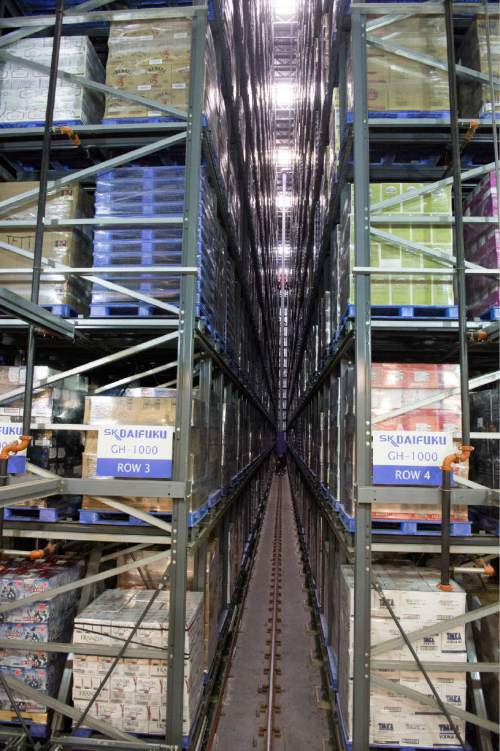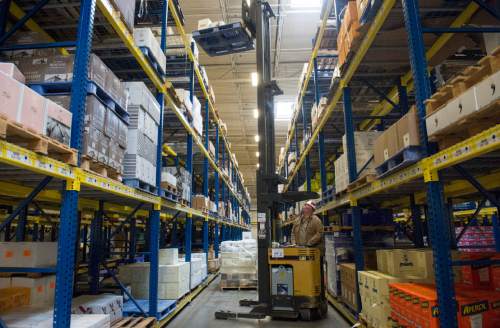This is an archived article that was published on sltrib.com in 2016, and information in the article may be outdated. It is provided only for personal research purposes and may not be reprinted.
Utah bar and restaurant owners say they have lost valuable time — and money — over the past month because liquor orders coming in from the state have been incomplete or contained incorrect products.
The glitches, they say, started after July 5, when the Utah Department of Alcoholic Beverage Control switched its inventory software program. During the change, important computer data went missing and orders started going awry.
To get the beer, wine and spirits they need, restaurant and bar owners have been traveling to multiple liquor stores around the state to find products, said Tamara Gibo, president of the Salt Lake Area Restaurant Association and co-owner of Takashi.
But even that hasn't completely solved the problem, she said, as the DABC's online inventory may say a specific liquor store has a product, but when the employee arrives at the location, the item is sold out. Or, conversely, a special-ordered product may have arrived at the DABC warehouse in Salt Lake City, but it doesn't show up in the computer inventory system.
"And there's not enough staff at the warehouse to go check," Gibo said. "It's been a bigger nightmare than anyone thought it was going to be."
The inventory mix-ups have been especially problematic for Salt Lake City restaurants that are trying to accommodate thousands of out-of-town visitors attending the annual Outdoor Retailer Summer Market, which runs through Saturday.
"It affects the bottom line when you have to send a manager to go buy products from four different liquor stores," said Gibo. "It affects the bottom line when restaurants have to reprint menus because items are not available."
Terry Wood, the DABC's director of communications, acknowledged that computer glitches have occurred, but with any new system, "problems are expected and the department didn't know what the issues would be until the system went live."
Wood said the DABC tried to be proactive, bringing in an extra team of technical experts during the launch. It also created a hotline that liquor store managers could call if there were problems.
While inventory issues likely occurred statewide, they wer most pronounced along the Wasatch Front, Wood said, noting that inventory problems are being worked out.
"We've identified the issues, and many of them have been solved," he said. "The rest of them should be resolved within the next week."
Wood said that while working through the problems, the DABC "never stopped shipping, receiving and selling" alcoholic products and "the general public would not have noticed problems in the liquor stores, unless they had ordered something unique."
Still, the situation may have lasting effects: Bar and restaurant owners say the special ordering system seems to have been hard hit by the glitch, with some orders seemingly erased. They also are worried about having to pay for seasonal items that were specially ordered for summer and Outdoor Retailer, but have not yet arrived.
Utah's top restaurants and bars have increased use of the special-ordering system in the past few years to get unique beer, wine and spirits that aren't generally stocked in state liquor stores. The special orders typically come from smaller, boutique producers in the U.S. and abroad.
Several restaurants, for example, are waiting to receive shipments of rosé, a classic summer wine. The software glitch means the cases likely will come later than expected or not at all. "They've lost an opportunity," Gibo said, "because no one is going to sell rosé wine in the winter."
The problem, said Gibo, underscores the need for the Legislature to increase the DABC budget and let department leaders operate more like a traditional business. "It's a business, but it's expected to operate like a government entity," she said. "And no one is taking into account that the thing pays for itself."





